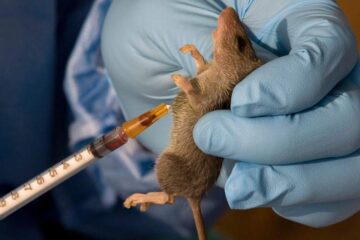Lassa fever: Nigeria recorded 190 deaths, 1,154 cases in 2024, says NCDC

Nigeria recorded a total of 1,154 Lassa fever cases with 190 deaths this year, the Nigeria Centre for Disease Control and Prevention (NCDC), has said.
The Director General of the agency, Dr Jide Idris, stated this Monday in Abuja while giving an update on the Lassa fever outbreak in the country.
He said, “Cumulatively this year, we have recorded 9,492 suspected cases, 1,154 confirmed cases with 190 deaths. ”
The NCDC DG said six states make up 89% of the confirmed cases, namely: Ondo (29.7%), Edo (22.7%), Bauchi (17.9%), Taraba (8.8%), Benue (5.6%), and Ebonyi (4%).
He also said that 10 local government areas Owo, Etsako West, Esan West, Kirfi, Ardo-Kola, Toro, Ose, Akure South, Jalingo and Idah) accounted for almost 59% of the confirmed cases.
Idris said there has been an alarming increase in Lassa fever cases and deaths in the last four weeks, signaling the outbreak’s severity.
According to him, firstly, the case fatality rate has consistently remained high, over 13%, and there is a rise in the number of suspected cases compared to a similar timeline in 2023.
He said this, however, could be attributed to the increased surveillance.
He said most cases continued to emerge from endemic areas, like Bauchi, Ondo, Edo, Taraba Ebonyi and Enugu, underscoring the need for targeted interventions in these states.
Idris said some activities during the yuletide could predispose Nigerians to Lassa fever infection and warned the public to be cautious of foods shared to ensure they are not contaminated.
While saying that these trends demanded a coordinated effort to strengthen response and protect our vulnerable populations, he said, “Our goal is to reduce the number of cases and importantly, deaths”.
To address the situation he said NCDC conducted a dynamic risk assessment to determine the appropriate emergency activation level.
He said the risk had been categorised as ‘High and Response Level 2′ advised, and efforts to be tailored specifically to the states currently experiencing increased case burden.
He also said the Emergency Operations centre (EOC) was activated to ensure seamless coordination of Lassa fever control and management activities using a One Health approach.
He further said in preparation for this outbreak season, critical medical supplies, infection prevention and control (IPC) materials, and laboratory diagnostic tools and materials have been distributed to various states, nationwide.
He said Lassa Fever testing laboratories had also been expanded from about 9 to 13, adding that more would be upgraded.
“Shared mitigation activities outlined in the Lassa fever preparedness plan, including advisories with all 36 states and the FCT, focusing on the hotspot states (Edo, Ebonyi, Bauchi, Ondo and Benue),” he added.
Lassa fever is an acute viral haemorrhagic fever (VHF) caused by the Lassa virus.
The natural reservoir for the virus is the multimammate rat (also known as the African rat). Other rodents can also act as carriers of the virus.
The virus spreads through direct contact with droppings from the urine, faeces, saliva, or blood of infected rats; contact with objects, household items, and surfaces contaminated with infected rats’ urine, faeces, saliva, or blood; consuming food or water contaminated with these droppings person-to-person transmission can also occur through direct contact with the blood, urine, faeces, vomit, and other body fluids of an infected person.











